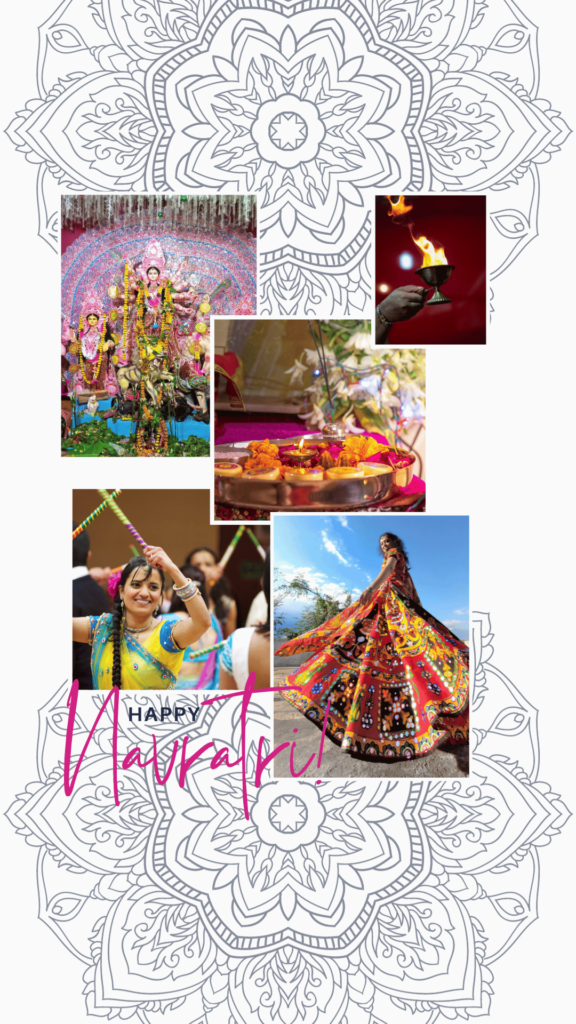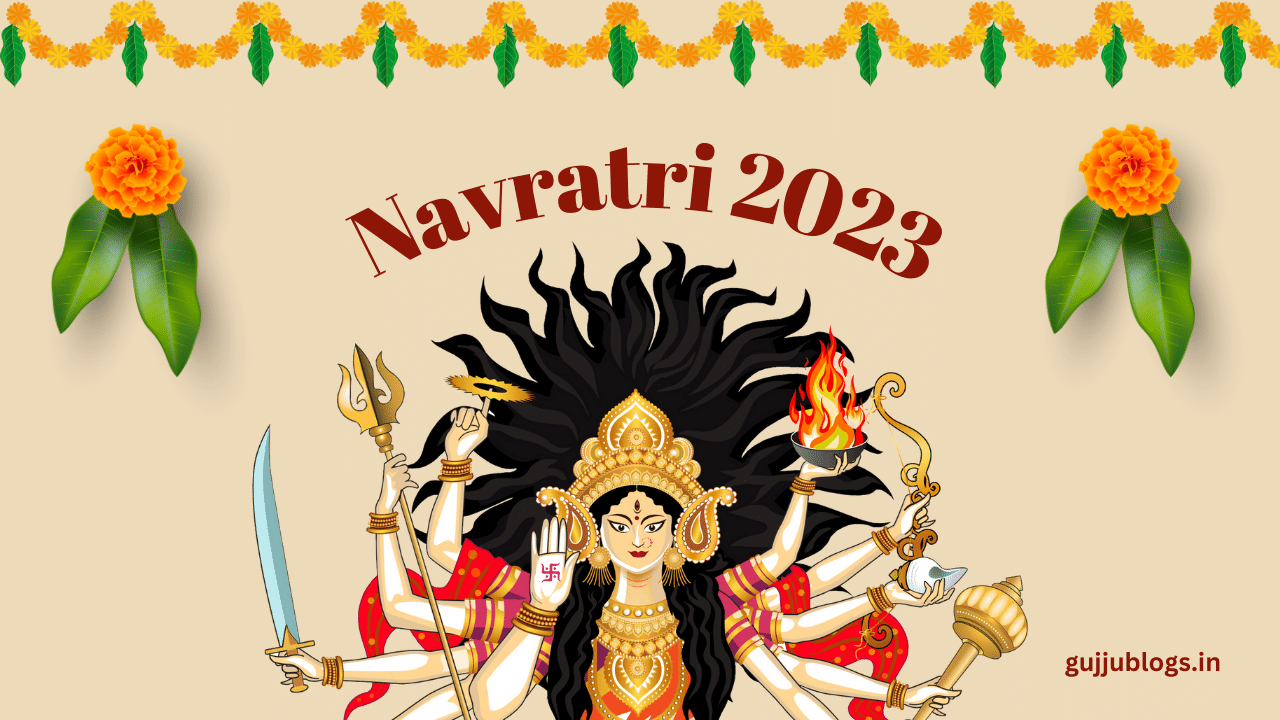Navratri is quickly approaching, it’s time to start thinking about how you want to celebrate the festival. A festive touch may brighten the event and improve the mood, whether you go all out with colorful colors and traditional decorations or keep things simple.
In this article, we’ll walk you through some easy-to-do-but-gorgeous Navratri decor ideas to get your house ready for the festival.
Colors as per nine days:
Day 1: Maa Shailputri’s color is yellow. Use yellow candles, pillows, garlands, and flowers.
Day 2: For Maa Brahmacharini, green. Mango leaves, rangoli powders, and green textiles should be added.
Day 3: Gray, a representative of Maa Chandraghanta, on Day 3. Accentuate your décor with ash, silver, or gray hues.
Day 4: Maa Kushmanda’s color is orange. Lights, marigolds, and an orange swastika should all be used.
Day 5: The color white represents Maa Skandamata. Add milk, pearls, jasmine, and white flowers.
Day 6: Red, signifying Maa Katyayani’s strength. Use scarlet rangoli, red candles, red roses, and bandhani textiles.
Day 7: Royal Blue in observance of Maa Kalratri. Decorate with rangoli, blue textiles, hyacinths, and orchids.
Day 8: Maa Mahagauri’s color of choice is pink. Make use of pink textiles, bougainvillea, and lotuses.
Day 9: Purple is the color of Maa Siddhidatri. Include purple rangoli, orchids, textiles, and bougainvillea.
You may give your home a genuine Navratri feel by decorating with colors that correspond to the various forms that Maa Durga has taken throughout history. Decorate with these time-honored color schemes to celebrate this occasion fully.
Garba
The garba event is a colorful and vivacious Navratri festival celebration. It is a night of feasting, singing, dancing, and adoration of Goddess Durga. Garba events are hosted all around India during Navratri, Gujarat is typically famous for the same. One can surely state that they’re a wonderful opportunity to soak in the joyous spirit.
A prayer to Goddess Durga usually ushers in the start of the garba celebration. The performers then step out onto the dance floor and start dancing in a circle. People of all ages and dance abilities can execute the garba dance because it is a straightforward dance. The dancers encircle a central lamp or Durga idol in a clockwise motion. They clap their hands and sing devotional tunes as they dance.

Food
The nine-day Hindu celebration of Navratri commemorates the triumph of good over evil. Many individuals fast during this time because it is a time of spiritual renewal and purification. During the Navratri fast one can eat food from a variety of options available. Dishes prepared without using onions or gluten are a great option.
- Sabudana is a popular ingredient for making snacks like Sabudana Khichdi and Sabudana Vada. It is often used during fasting because it provides energy and is easy to cook.
- Kuttu flour is used to make dishes like Kuttu Ki Puri and Kuttu Ka Paratha. It’s a staple during Navratri fasting.
- Bananas, apples, pomegranates, and oranges are commonly consumed during Navratri. They are considered pure and easy to digest.
- Milk, yogurt, and paneer (Indian cottage cheese) are allowed during Navratri fasting. Dishes like Paneer Tikka and Kheer (rice pudding) are prepared using these ingredients.
Conclusion
Navratri is a multifaceted festival that transcends the boundaries of religion, caste, and culture. It is a celebration of life, victory, and feminine power, encapsulating the essence of Indian culture and tradition. Navratri is also a time for reflection and introspection, as we contemplate the lessons learned from the nine forms of the goddess Durga.
To know more about the significance of each day of Navratri, stay connected. May Maa Durga bless all with immense happiness and prosperity.
